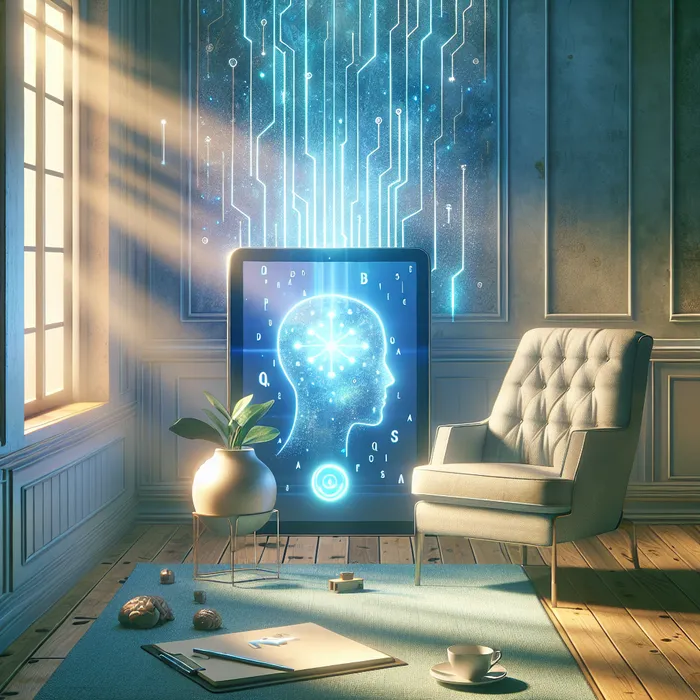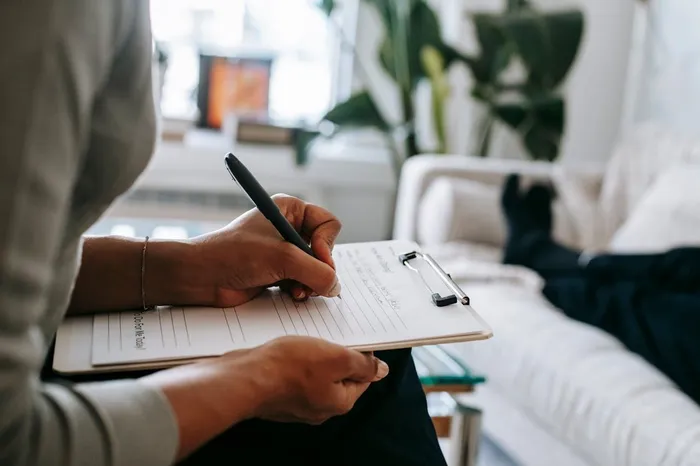
AI serves as a supportive tool but should not replace professional care.
Image: Ron
Artificial intelligence (AI) is no longer a futuristic concept it’s here, embedded in our daily lives, reshaping how we work, connect, and even care for our mental health.
But can a chatbot like ChatGPT truly replace a human therapist?
The question might sound far-fetched, but as the use of AI in mental health continues to grow, this debate has become urgent and deeply personal.
To explore this, I turned to Cassie Chambers, operations director at the South African Depression and Anxiety Group (SADAG), who offered thoughtful insights into this complex conversation.
Let’s dive into the pros, cons and the bigger picture of AI’s role in mental health support.
AI tools like ChatGPT are undeniably convenient. Available 24/7, stigma-free, and offering instant responses, they’re a lifeline for people seeking immediate support.
“AI can simulate conversations, suggest coping techniques, and even provide resources like breathing exercises or links to helpful videos," Chambers explains.
"But it cannot replicate the deep empathy, compassion, and authentic human connection that come from a skilled therapist.”
Human therapists bring something irreplaceable: the ability to read subtle cues like tone, body language and even those heavy pauses that convey unspoken emotions.
“Therapists rely on intuition, warmth, and their own lived experiences, Chambers says. "This creates a healing relationship built on trust, shared humanity and vulnerability, something no algorithm can fully replicate.”
AI’s growing popularity highlights gaps in the traditional mental health care model. People want flexibility, affordability, and immediate support qualities often missing in conventional therapy.
“When someone is in crisis, they can’t always wait weeks for an appointment,” Chambers notes. “Traditional models need to evolve to meet these changing demands.”
AI offers an accessible, user-friendly option. It’s as simple as opening an app or sending a message, making support available when and where people need it most. SADAG, for example, has embraced a hybrid approach, offering both human-led support groups and digital tools to reach people on their terms.

Therapists rely on intuition, warmth, and their own lived experiences. This creates a healing relationship built on trust, shared humanity, and vulnerability something no algorithm can fully replicate.
Image: Pexels
Perhaps the most thought-provoking aspect of this debate isn’t about AI replacing therapists, but what it reveals about human connection today.
Chambers reflects on how many people feel more heard and understood by AI than in their real-life relationships. She says, “This is deeply telling. It shows how much we struggle to find safe spaces where we feel free to open up and be vulnerable.”
The pandemic only deepened this disconnect.
“Covid-19 disrupted our ability to communicate and connect," Chambers explains.
Young people, in particular, have struggled to rebuild those skills. It’s like that saying: You can be in a room full of people and still feel utterly alone. While AI chatbots can simulate empathy and active listening, they can’t replace the mutual connection and shared humanity of real relationships.
Research during Covid highlighted the power of a simple phone call with a loved one, which could boost mood and mental well-being as effectively as therapy.

AI can access vast amounts of data, providing insights into therapy techniques, psychological models and case studies. However, the human touch remains irreplaceable for complex issues such as trauma, addiction or depression.
Image: Ron
AI excels in accessing vast amounts of data, offering insights into therapy techniques, psychological models, and case studies. But when it comes to complex issues like trauma, addiction, or depression, the human touch remains irreplaceable.
“These cases require nuanced, moment-to-moment intuition shaped by personal history, cultural context, and emotions,” Chambers explains.
"A therapist’s ability to adapt their approach to each person’s unique story is something AI can’t replicate.”
That said, AI can complement human therapists by streamlining their work and handling routine tasks like screenings or resource sharing, freeing up therapists to focus on deeper, more complex care.
One troubling trend is the emotional attachment some users form with AI. Vulnerable individuals, particularly young people, have reported naming their AI companions and even building what feels like romantic relationships.
These attachments, while understandable, can lead to heartbreak and even harm when users realise the relationship isn’t real.
“This is why critical thinking and education are so important,” Chambers stresses.
"AI can be a supportive tool, but it should never replace professional care. Just like you wouldn’t trust Google to treat cancer or diabetes, you shouldn’t rely solely on AI for mental health.”
Chambers envisions a collaborative future where AI and human therapists work together.
“AI can handle the basic screenings, psychoeducation, and routine check-ins while human therapists focus on the deeper work of healing, she says. "This partnership could make mental health care more accessible without losing the deeply human aspect that’s essential for true healing.”
However, the risk is that people might see AI as “good enough” and stop seeking human connection altogether.
“We must ensure that humans remain at the heart of mental health care, Chambers emphasises. Post-Covid, we’ve learned that humans need humans. No machine can replace the profound impact of genuine human connection.”
The rise of AI in mental health is a wake-up call not just for therapists, but for all of us.
It forces us to examine how we connect and how we can do better. While AI can be a powerful tool, it’s not a solution. It’s a supplement, a first step, but never the whole journey.
As we navigate this new digital age, we must prioritise fostering compassionate, accepting relationships in our homes, workplaces and communities.
At the end of the day, no machine can ever make us feel as seen, heard, and valued as another human being can.
